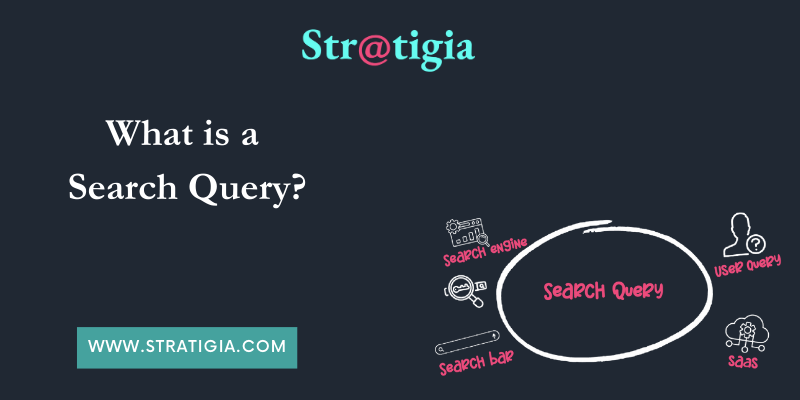A search query is the term or phrase that users enter into search engines to find information. This guide will delve into the significance of search queries, their impact on SEO, strategies for optimizing content around them, and their importance for SaaS companies.
I. Understanding Search Queries
1. Definition and Basic Concept
A search query is a word, phrase, or sentence users input into a search engine to find specific information. Search engines use complex algorithms to interpret these queries and return relevant results. The accuracy and relevance of these results depend heavily on how well websites are optimized for these queries.
2. The Role of Search Queries in SEO
Search queries are the foundation of SEO. Understanding and optimizing for the right queries can significantly enhance a website’s visibility and ranking on search engine results pages (SERPs). This involves keyword research, content optimization, and understanding user intent.
II. Types of Search Queries
1. Navigational Queries
Navigational queries are used when trying to find a specific website or page. For example, “Facebook login” or “Gmail” are navigational queries. These are important for brand visibility and ensuring users can easily find your site.
2. Informational Queries
Informational queries are used when users seek information about a particular topic. Examples include “how to make pizza” or “what is SEO.” Optimizing for these queries involves creating detailed, informative content that answers users’ questions.
3. Transactional Queries
Transactional queries indicate a user’s intent to perform a specific action, such as making a purchase or signing up for a service. Examples include “buy Nike shoes” or “sign up for Netflix.” These queries are crucial for conversion-focused SEO strategies.
III. Optimizing for Search Queries
1. Keyword Research
Keyword research is the process of identifying the search queries your target audience uses. Tools like Google Keyword Planner, Ahrefs, and SEMrush can help you find relevant keywords with high search volumes and low competition.
2. Content Optimization
Once you have identified your target keywords, integrate them naturally into your content. This includes using keywords in titles, headings, meta descriptions, and throughout the body of your content. Ensure your content provides value and addresses the user’s intent behind the query.
3. Technical SEO
Technical SEO involves optimizing the technical aspects of your website to improve its visibility in search engines. This includes ensuring your site is mobile-friendly, has fast load times, and uses proper HTML tags and schema markup. For more in-depth strategies on content optimization, visit our SaaS Content Marketing Agency.
IV. User Intent and Search Queries
1. Understanding User Intent
User intent refers to the goal a user has when performing a search. Understanding user intent is crucial for creating content that meets the needs of your audience. Intent can be informational, navigational, or transactional.
2. Aligning Content with User Intent
Ensure your content aligns with the user’s intent behind their search queries. For informational queries, provide comprehensive answers and insights. For transactional queries, focus on making it easy for users to complete their desired actions.
V. Common Mistakes in Optimizing for Search Queries
1. Keyword Stuffing
Keyword stuffing involves overloading content with keywords in an attempt to manipulate search rankings. This practice can lead to penalties from search engines and a poor user experience. Focus on natural, relevant use of keywords.
2. Ignoring Long-Tail Keywords
Long-tail keywords are longer, more specific search queries that often have lower search volumes but higher conversion rates. Ignoring these can mean missing out on valuable traffic. Include a mix of short and long-tail keywords in your strategy.
3. Overlooking Mobile Optimization
With the increasing use of mobile devices, it’s crucial to ensure your site is optimized for mobile search queries. This includes having a responsive design and fast mobile load times. For more on avoiding common SEO mistakes, check out our SaaS SEO Agency.
VI. Real-Life Examples of Successful Search Query Optimization
1. E-commerce Websites
E-commerce websites often optimize for transactional queries to drive sales. For example, an online shoe store might optimize for “buy running shoes online” and create content around running shoe reviews and comparisons.
2. Informational Blogs
Informational blogs can drive significant traffic by optimizing for informational queries. A cooking blog, for example, might target “how to make homemade pizza” and provide detailed recipes, tips, and videos.
VII. Why Search Queries are Important for SaaS Companies
For SaaS companies, understanding and optimizing for search queries is crucial for attracting potential customers. By targeting the right queries, SaaS companies can drive organic traffic, generate leads, and increase conversions. Optimizing for search queries also helps SaaS companies understand their audience’s needs and create content that addresses those needs, leading to higher user engagement and satisfaction.
FAQs on Search Queries
Q1) What is a search query?
A search query is a word, phrase, or sentence that users enter into a search engine to find specific information.
Q2) How do search queries impact SEO?
Search queries are the foundation of SEO. Optimizing for the right queries can enhance a website’s visibility and ranking on search engine results pages.
Q3) What are the types of search queries?
There are three main types: navigational, informational, and transactional queries.
Q4) What are long-tail keywords?
Long-tail keywords are longer, more specific search queries with lower search volumes but higher conversion rates.
Q5) Why are search queries important for SaaS companies?
Optimizing search queries helps SaaS companies attract potential customers, drive organic traffic, generate leads, and increase conversions.




